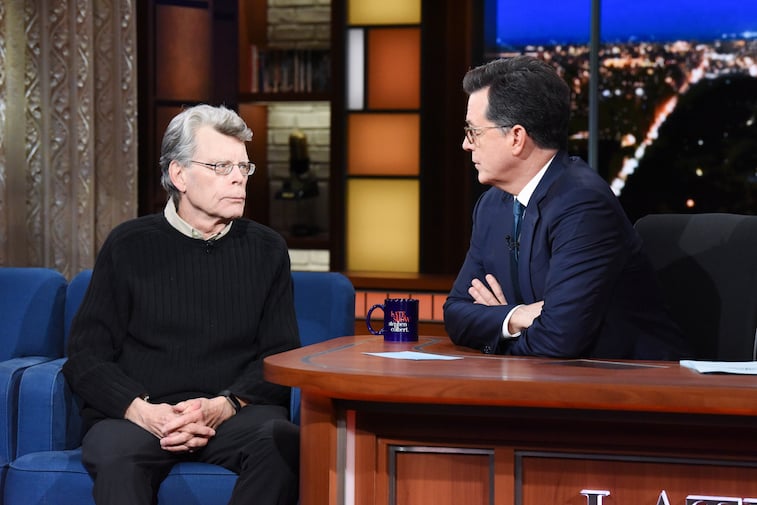Stephen King Approves of ‘Doctor Sleep,’ Makes Him Like ‘The Shining’ More
The original 1980 The Shining is still noted as having one of the biggest clashes of major ideas between the writer of the story and the director of the movie adaptation. Those who side with Stanley Kubrick’s film vision will say he expanded The Shining into a profound universe exploring everything from death to alternate realities.
For those adhering to Stephen King’s side, they’d say the story was more an examination of father-son relations and not intended as some kind of cosmological puzzle to unravel.
Whatever camp one wants to side with, Stephen King has gone full-circle in accepting part of Kubrick’s vision while taking in new director Mike Flanagan to adhere to King’s Doctor Sleep sequel.
Has King just softened with time, or was it capitulating to Kubrick usurping former’s ideas?
Mike Flanagan managed to convince King to do a hybrid movie adaptation

Anyone who’s read the book of Doctor Sleep knows it ignored the movie version of The Shining and adhered to the events in the first book’s original plot. Stephen King has stayed steadfast for almost 40 years on hating Kubrick’s vision of The Shining in ruining the real heart behind what the story was trying to say, leading to a mixed-bag 1997 TV miniseries adaptation.
Others might look at this as King envy in Kubrick expanding the story into something earth-shattering in its profundity. The irony behind this is King sort of became Kubrick himself in some of former’s later books.
When you place stories like The Stand into the King canon, you see the author expanding into loftier subject matter, including deep philosophical concepts.
It’s certainly possible Kubrick shaped King into thinking a little deeper when writing, whether latter will admit it or not. When the director of Doctor Sleep, Mike Flanagan, came to King to get him on-board for a hybrid adaptation, there was still some reluctance.
Ultimately, King relented because he’d worked successfully with Flanagan on another adaptation, plus was won over with the script. Once King saw the completed movie, he was convinced doing a hybrid story was the smartest way to go to please both sides.
Maybe moviegoers didn’t really care one way or the other
Releasing Doctor Sleep a week after Halloween was already a huge marketing snafu considering the film has performed well under what was expected. Nevertheless, critics have mostly been kind to the film, despite not declaring it anywhere near the stature of Kubrick’s vision.
There’s all possibility Kubrick’s version has stood alone for so many years, much of the public rejected this movie sequel as some kind of a knock-off of sorts. Since the film does revisit the Overlook Hotel and has nods to many of Kubrick’s most famous symbolic scenes, there was maybe a negative public perception.
Finding that middle ground between Kubrick’s world and King’s original story intention, though, was true deft creative balancing. No one would have initially believed it was possible to spin two different plates and make it work.
How the public ultimately views this movie version of Doctor Sleep will be interesting to see. After years of critical analysis for Kubrick’s The Shining, King may have to realize this media property was basically stolen from him and became something singular.
Media properties can easily be usurped by another person’s artistic vision
The Shining might have felt hijacked by Stanley Kubrick, yet it’s far from the only media property being consumed by another person’s creative direction. Star Wars is a good recent example, particularly J.J. Abrams and Rian Johnson expanding on George Lucas’s ideas, something latter didn’t necessarily agree with initially.
Plenty of examples exist of writers not agreeing with the movie adaptations of their books. P.L. Travers famously hated Walt Disney’s vision of Mary Poppins, and Winston Groom despised the movie version of Forrest Gump. Both of those movie versions are so overwhelming in pop culture, few hardly consider the book’s official canon.
Maybe Stephen King found some peace with Kubrick’s vision. Regardless, he may forever have to consider it one book of his stolen and bettered thanks to the view of a brilliant director.
At least he doesn’t have to say that about the rest of his long list of iconic books.


